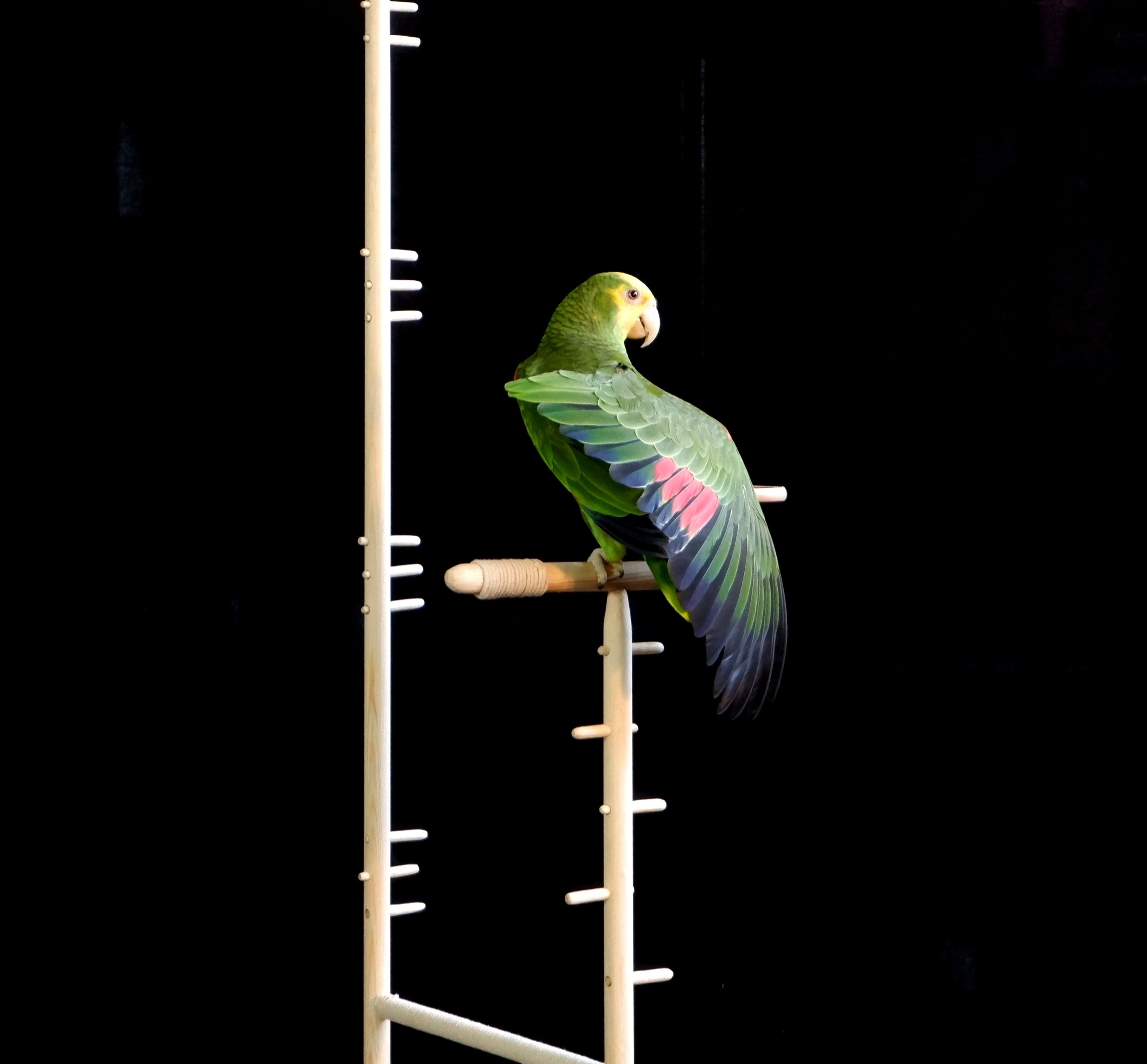
“The climate crisis is a communication crisis” says Young Climate Voice 2023 Winner
Mexican designer, photographer and climate activist Pamela Elizarrarás Acitores applied to the inaugural Young Climate Prize with her project Climate Words—a platform that aims to improve global climate literacy. After being selected for the cohort of 25 under 25s, and participating in a one-on-one mentorship program and a series of Design Academy sessions with global experts, she was named our Young Climate Voice 2023. The World Around executive director Beatrice Galilee spoke to Pamela about her experience as part of the cohort, the opportunities that have followed the program, and advice she’d give to the upcoming 2025 cohort.

Beatrice Galilee: Hi Pamela! Thank you for taking the time to speak to me, I’m so excited to catch up with you to hear about your Young Climate Prize experience. Can you start by telling us about your project, Climate Words, and how it contributes to helping solve the climate crisis?
Pamela Elizarrarás Acitores: A big part of the climate crisis, in my opinion, is that it's a communication crisis. Not many people understand the complexity of climate change, because it's very scientific and can be complicated. But sharing stories and projects related to the climate crisis enables a broader understanding, from very different perspectives, which makes it more tangible and also easier to become optimistic and do something about the issues. For Climate Words, we did some research and found that climate literacy is directly correlated to climate action, and people who are climate literate are actually three times more likely to take climate action. Climate literacy is not only reading science books, it's the ability to understand the climate crisis and the emergency we’re facing. Both Climate Words and The World Around are platforms that share these stories and knowledge, and contribute to the positive impact.
BG: Why did you choose to apply for the Young Climate Prize?
PEA: I applied because, as part of the Youth Climate movement, most of us are part of the same generation, and very few of us have actual job experience. We started out as students and have grown up into activism roles. And I really wanted someone to help us who had more experience, which being in a mentorship program offered. I was looking for collaboration with other people that were way more experienced than I am, and people I looked up to, so this opportunity excited me a lot.
BG: How did you find the experience as part of the cohort of 25 under 25?
PEA: At the beginning of the program, I was more excited about the mentorship. Because I didn't really know how involved the cohort was gonna be. But it was so exciting because as soon as I went into the first session, I started getting messages from the other members saying hi and wanting to collaborate in various ways. From the very beginning, everyone wanted to help each other and truly be part of a community. It really surpassed any expectations.
BG: Your mentor during the program was Mariana Pestana, a Lisbon-based architect, researcher and curator specializing in the field of contemporary design and architecture. What was your relationship with Mariana like, and what did you learn from her?
PEA: Mariana taught me so much. When we started the mentorship, we had to establish three goals for ourselves. So the first call with her involved talking about what the project needed the most, and to give it a sense of direction. Before the program started, Climate Words seemed like this big chaotic idea that we didn't really know how to steer. So she helped us to curate the way the project was structured: into words, books and stories. Then she went deeper into helping us curate the themes of the words and the topics. She taught me that you can be a curator outside of a museum exhibition, and that the curation process has the power to draw the viewer, the reader, the audience into the experience. So if it's well done, it can lead to a much longer and greater impact.
At the end of the mentorship, I asked Mariana if she could be our advisor for Climate Words, and she very kindly said yes. She's now helping us to continue curating the online dictionary. Mariana is also part of a project called Bauhaus Of The Sea, and she has invited me to be involved with that too.
BG: As part of the Design Academy, the cohort took part in weekend sessions with our global Design Champions—friends and alumni of The World Around, who offered a broad array of knowledge and advice through presentations, workshops and discussions with the group. What did you learn during the Design Academy, and which of the sessions really stood out for you?
PEA: The Design Academy sessions were definitely an exciting part of my weekend, and became part of my routine. They were all so great, but the one I remember standing out was Alice Rawsthorn’s session about her Design Emergency initiative. I could see so many correlations with Climate Words, and was so inspired to see the way she's collaborating with so many designers, artists, and amazing people. It made me realize that you don't need to be the one who's in the spotlight, but you can offer a platform for someone else’s project and work.
BG: How did you interact with and learn from the other cohort members?
PEA: We had a group WhatsApp chat that was very helpful to be able to establish a sense of community. As the program progressed, we became a closer group of friends. On social media, many of us were engaging with one another’s day-to-day activities and life updates, and planning to see each other in person. During the final part of the program, when we were working on our project submission videos for the jury, it could have become super competitive, but it was the complete opposite. There was always support from one another, and we would text to check how things were going, and if anyone needed any help. We really cheered on each other’s projects, so it did turn into a real community and support system.
BG: How did the global diversity of the cohort contribute to your experience of the program?
PEA: I'm always up for collaborating with people from completely different backgrounds, because I think that oftentimes, when we're only working within our local community, we ignore other points of views and perspectives. That's another layer of the program: We were all from so many different countries, cities, and even careers. There were a lot of architects, but there was also Aziba who’s a poet, Namra is a cartographer, and I’m a designer and photographer. Between us, we had so many different skills and perspectives, which became apparent through the conversations that we had with each other. We are still learning from one another and each other's backgrounds, and sharing local knowledge between us.
BG: You were chosen as the 2023 prize’s Young Climate Voice winner! What opportunities has this created for you and your project?
PEA: For the project, the most visible progress was that we were able to get a clearer understanding of what Climate Words is, what we're doing, and also creating very specific roles for our team. Now we're a group of 12 volunteers. It has opened up many opportunities, but also a community that is very exciting to be part of and to be able to connect with everyone.
BG: What advice would you like to pass on to those selected for next year's YCP cohort?
PEA: For those who are chosen, I would suggest they take the program seriously, and really take advantage of every single moment, because it goes by so fast. If you fully immerse yourself, you're able to take so much away from it—there's just so much knowledge embedded within it. The program is six months, but the relationships and connections that we built will last so much longer.
BG: Finally, if anyone is interested in getting involved with Climate Words or learning more about the project, how can they do so?
PEA: They can go to our website, Climatewords.org, where they can donate, read our dictionary, and find information about our events to take part in.
Related Videos

Climate Words
Young Climate Prize Award Ceremony


LyntonPepper.jpeg&w=3840&q=75)